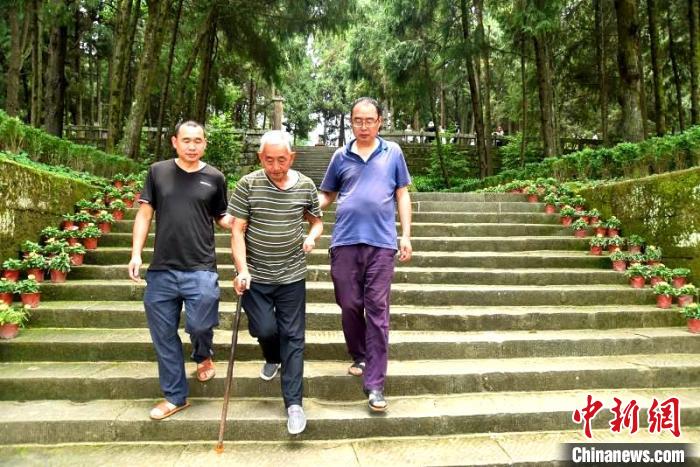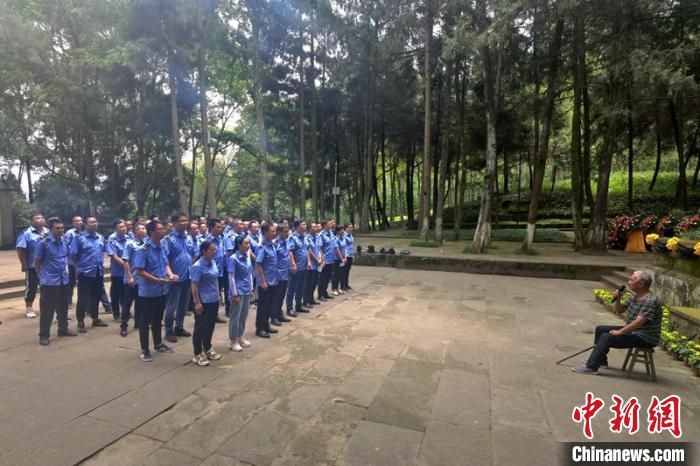Family volunteers to guard martyrs' cemetery for decades
People visiting the Sichuan-Shaanxi revolutionary base, the country’s largest cemetery for Red Army martyrs, may find an old man with gray hair helping sweep the tombs and remove weeds - despite his limited mobility.
He is Wang Jiangang, a 69-year-old resident of Wangping village, Tongjiang county in Southwest China’s Sichuan province. The village is home to the largest cemetery for red army martyrs in China. More than 25,000 Red Army martyrs are buried there.

Wang Jiangang (center) and his family members [Photo/Chinanews.com]

Wang Jiangang (right) tell visitors stories about Red Army. [Photo/Chinanews.com]
Areas inside the cemetery where people can pay homage to the martyrs include a square, an avenue, a memorial archway, a monument, and a memorial wall. It is a key national cultural relic protection unit, a national demonstration base for patriotism, and a national classic red tourism scenic spot.
According to Wang, his father, Wang Chengxian, was a Red Army soldier. At the end of 1932, when the Fourth Front Army of the Chinese Workers' and Peasants’ Red Army came to Tongjiang, his father, who was about eight or nine years old, was admitted to the Children's Corps, and did some easy jobs, such as standing guard, delivering messages and decocting herbs for the injured.
One day in April 1935, when Wang Chengxian returned after sending a letter to another Red Army group about 70 kilometers away from Wangping, the troop in his village had moved to their next destination.
Though Wang Chengxian didn't go with them, he became the first volunteer keeper of the cemetery, and guarded it until he passed away in 1980.
Wang Jiangang inherited his father’s will and has continued to guard the cemetery since 1980. He cleaned the cemetery in the early morning and then went to do farm work.
A day in December 1982 impressed him a lot. Dozens of Red Army veterans lined up in front of the martyrs’ tombs and cried out in chorus: “Fellows, we are coming to see you.”
They cried out their fellows’ name and "cleaned the tombs with their tears". The touching moment made Wang better understand why his father asked him to carry out his unfulfilled will.
As Wang ages, and moreover, as an accident left him physically handicapped at the age of 42, his son, Wang Junpei, took on the baton from him. He said his family would pass down the spirit of the Red Army to the next generation.
Wang Jiangang has now become a volunteer interpreter, telling stories of the Red Army and teaching revolutionary songs to visitors, including students, soldiers and the offspring of the revolutionary martyrs.

